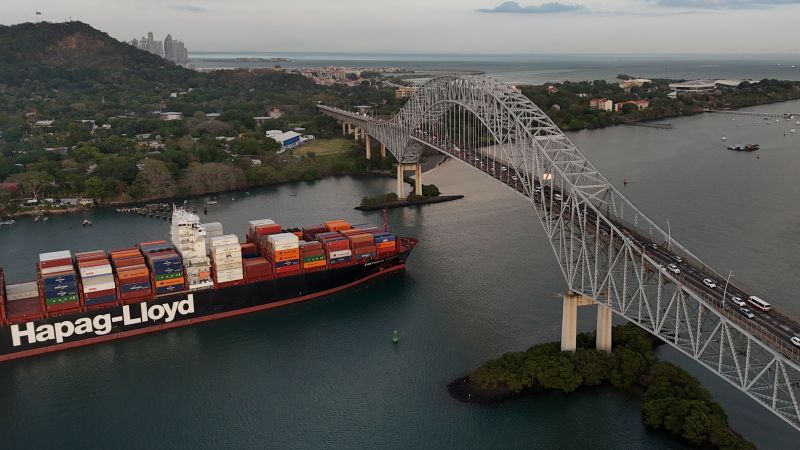
US-China rivalry over Panama Canal sparks tensions, leaving Panama caught in war of words
CNN
Panama promotes itself “as the bridge of the world, heart of the universe” but lately the narrow Central American Isthmus and its namesake canal that joins the Atlantic to the Pacific have become the setting for a bitter clash between the world’s two preeminent economic superpowers.
Panama promotes itself “as the bridge of the world, heart of the universe” but lately the narrow Central American Isthmus and its namesake canal that joins the Atlantic to the Pacific have become the setting for a bitter clash between the world’s two preeminent economic superpowers. The escalating war of words between the US and China over the canal has left Panama – which does not have a military – baffled and brings to mind the old proverb of how “when elephants fight, it is the grass that suffers.” From the beginning of his second term, US President Donald Trump has claimed without proof that China secretly controls the canal where around 40% of US container traffic passes through. If China’s alleged influence over the canal wasn’t halted, Trump threatened to “take back” the iconic waterway that the US returned to Panama in 2000, employing military force if needed. Panama’s President José Raúl Mulino rejects Trump’s claims but has also made significant efforts to placate the White House, such as dropping out of China’s Belt and Road investment initiative in February. In March, US investment giant BlackRock announced a $22.8 billion deal to buy 43 ports, including two located on either side of the Panama Canal, from CK Hutchison, the Hong Kong logistics company that the Trump administration has accused of being under Beijing’s control – something Hutchison denies. But those concessions seem to have only added fuel to the White House’s bellicose rhetoric, most recently this week from Secretary of Defense Pete Hegseth during a visit to Panama to attend the Central American Security Conference.

Rep. Marjorie Taylor Greene made clear she is at odds with the president and other Republicans who support an aggressive posture against Iran, acknowledging that there’s a “very big divide” in the party over the issue and that her position opposing foreign wars is becoming “more popular” among the base.

 Run 3 Space | Play Space Running Game
Run 3 Space | Play Space Running Game Traffic Jam 3D | Online Racing Game
Traffic Jam 3D | Online Racing Game Duck Hunt | Play Old Classic Game
Duck Hunt | Play Old Classic Game










